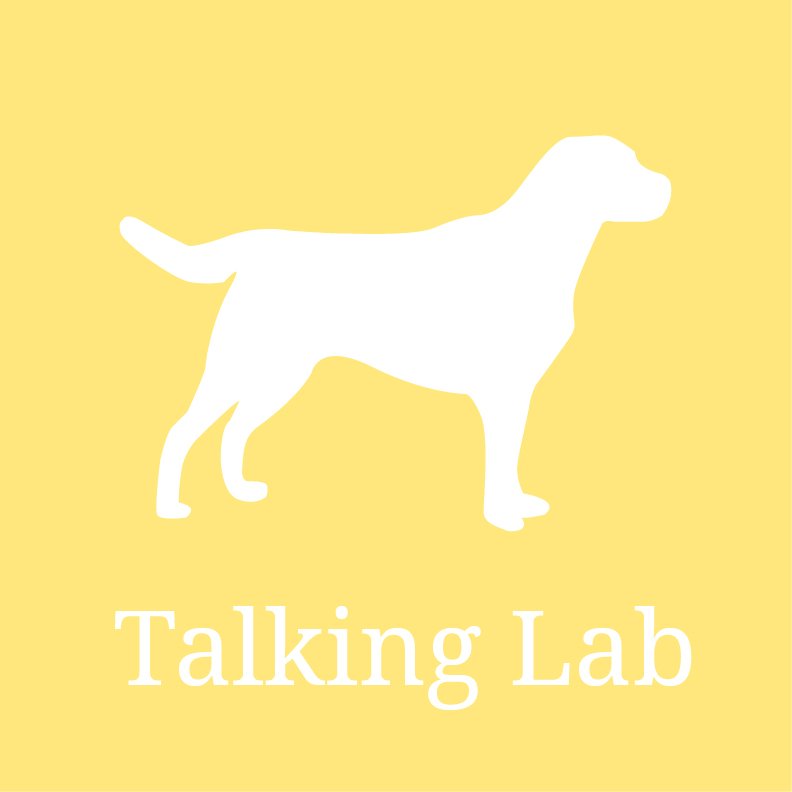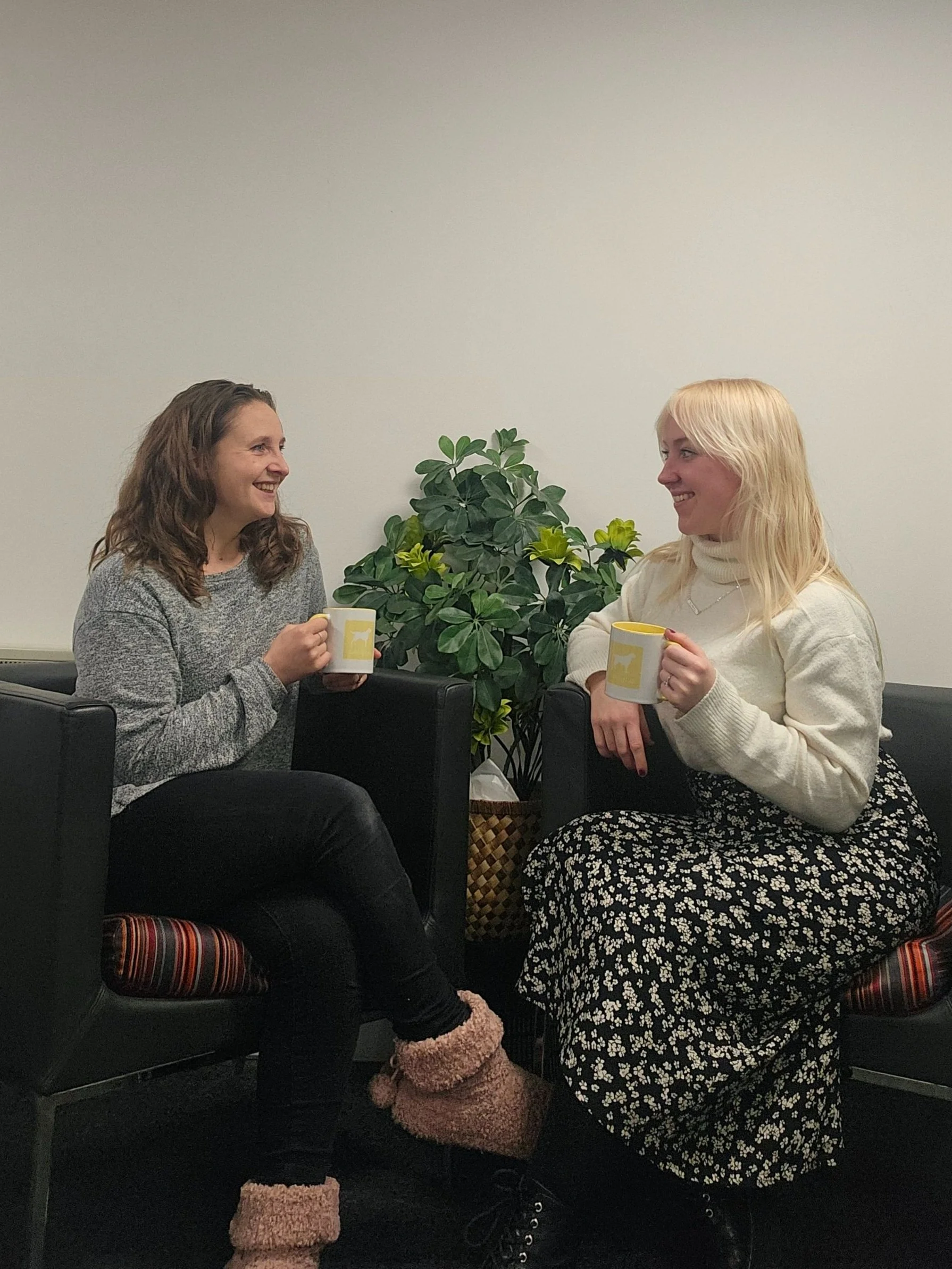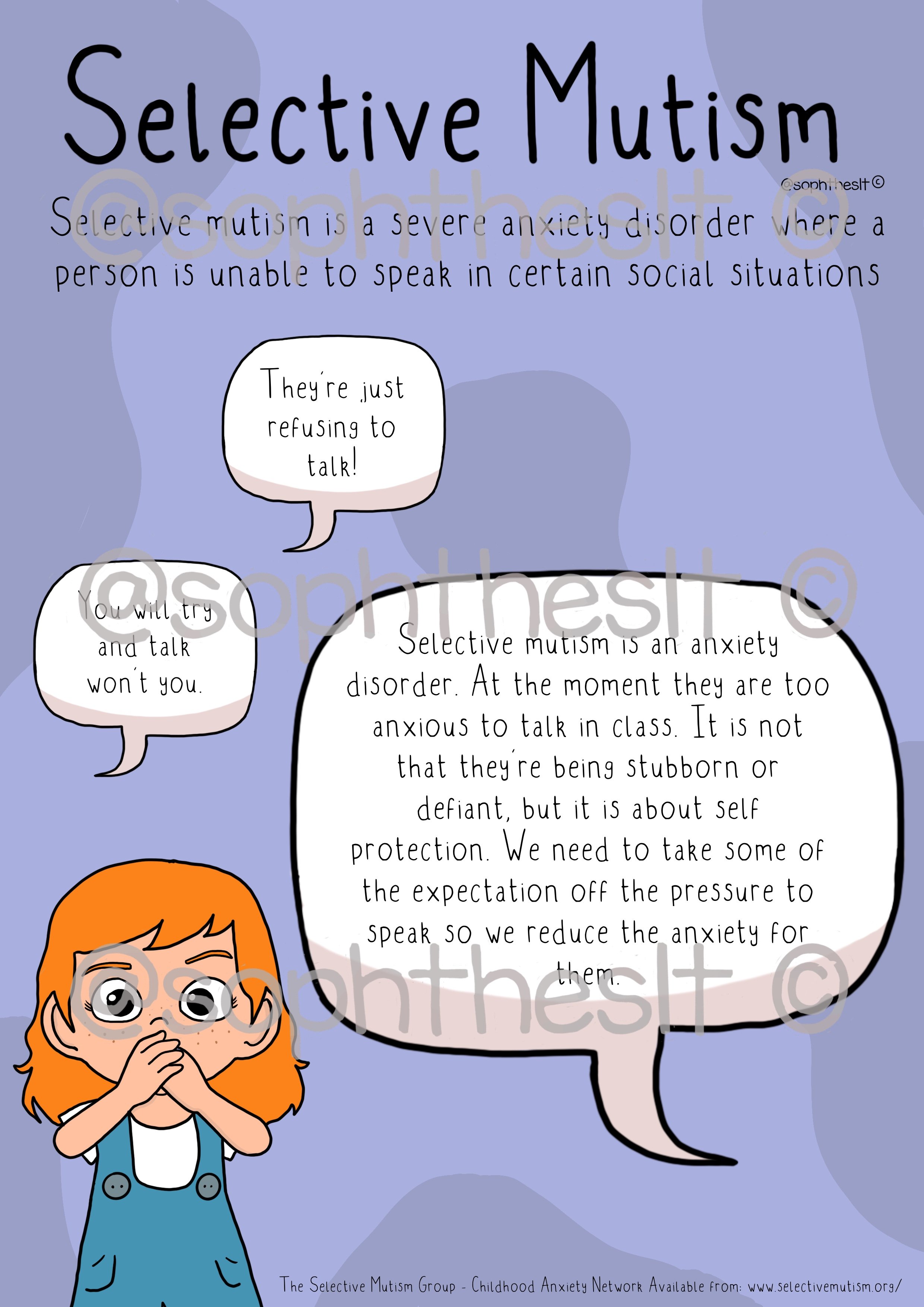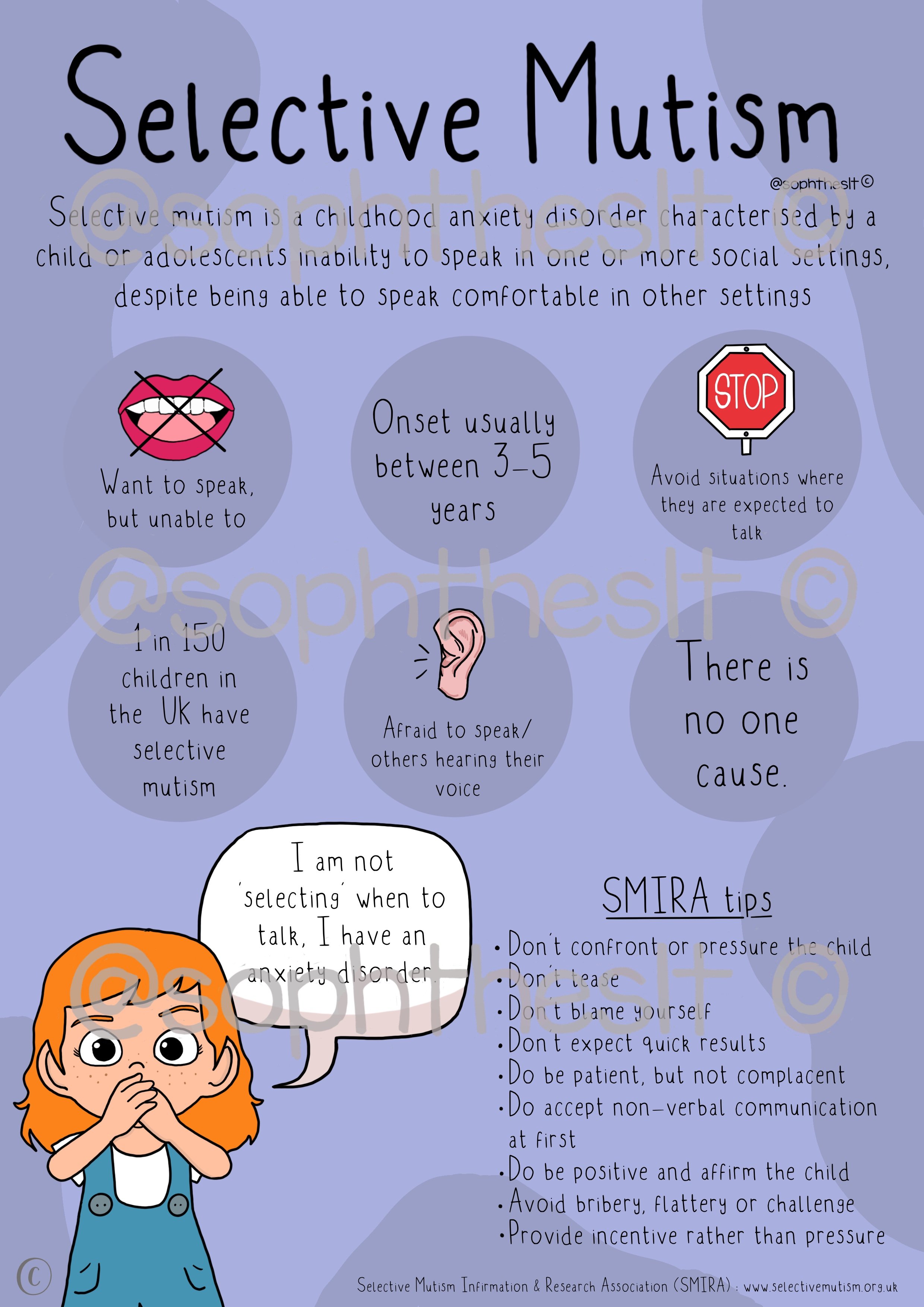Selective/ Situational Mutism (SM)
"Selective Mutism (SM), also called Situational Mutism is an inability to speak in specific social situations due to high levels of anxiety.
Not a Choice:
People with Situational Mutism are not choosing when to speak.
Panic Response: The inability to speak is due to a panic response triggered by certain environments and situations.
Severity: In severe cases, individuals might not even be able to nod or shake their heads.
Physical Signs: Individuals may have blank expressions or appear 'frozen' when expected to speak.
Triggers:
Stress, anxiety, and feeling overwhelmed can activate the panic response.
Beyond Talking: Communication difficulties extend beyond speech; writing, pointing, signing, or using communication aids can also be challenging.
Supporting someone with Situational Mustim
Someone who is Situationally Mute may benefit from using alternative communication strategies to communicate their wants/needs at times when they are unable to speak. For example:
Using a whiteboard and pen
Handwriting/ Typing
Signing/ gestures
Using a communication app on their phone
Different things you say, write or type have a different “communication load”. This means they take different amounts of brain power to share things that have a “low” communication load (meaning they are easier to communicate)
Things that have a “low” communication load include:
Questions that have no risk of wrong answers
Answering yes or no questions
Structured speech (such as reading from a book)
Talking in unison with other people
Things that have a “high” communication load include:
Sharing reasons for doing something
Sharing opinions or ideas
When you are unsure if an answer is acceptable
Initiating speech, especially if it is unplanned
Speaking to “high status” individuals
Talking about emotions
How Talking Lab can help!
Adult assessment
-
£300 + travel costs
-
£300 + travel costs
Are you an adult or young person with concerns about your own communication? Do you find it difficult to speak in certain situations? We can support you with your communication concerns!
Our adult assessment session looks at informally talking you through your communication strengths, needs and what communication goals you would like to
achieve.We can then provide you with some strategies on how to communicate and advocate for yourself. However, it may be beneficial to have a familiar adult present to support you in the session and with these strategies.
‘Breaking Down The Barriers’ Programme
-
£200 + travel costs
-
The 'Breaking Down the Barriers' programme was created by individuals who had experienced Situational Mutism when they were younger. The programme involves the child/young person engaging in sessions with an individual who they do not currently speak to (usually a teacher or teaching assistant at nursery/school/college). The sessions are 10 minutes long and ideally happen on every day that they attend their educational setting, or as many times per week as possible.
The programme involves the following stages:
Carrying out a series of fun tasks / games / activities with no pressure to speak
Engaging in activities involving making noises which does not involve speaking e.g. using musical instruments
Completing tasks involving making noises that involve the vocal chords, but without speaking e.g. coughing, humming
Responding to instructions using individual speech sounds e.g. letter sounds
Using Single words spoken during an activity
Using 2 word phrases within the session
Using Short sentences
Changing factors: situation, environment and people in the environment are adapted/ changed to build on the generalisability of the communication skills learnt in stages 1-7.
The programme requires an initial meeting, ideally with the speech and language therapist, yourself and the person who will be carrying out the programme.
The session involves will take around an hour and talk everyone through the programme, explaining all the different stages along with any troubleshooting questions. The programme is emailed over to the key adult, and the sessions between the key adult and the child/young person can begin whenever is appropriate.
Our roles as the therapist will then be just to provide email or phone call support to the key adult who carries out the daily sessions.
Additional Resources
Selective Mutism Information & Research Association (SMIRA): https://www.selectivemutism.org.uk/
Autism Understood: https://autismunderstood.co.uk/co-occurring-conditions/selective-mutism/






